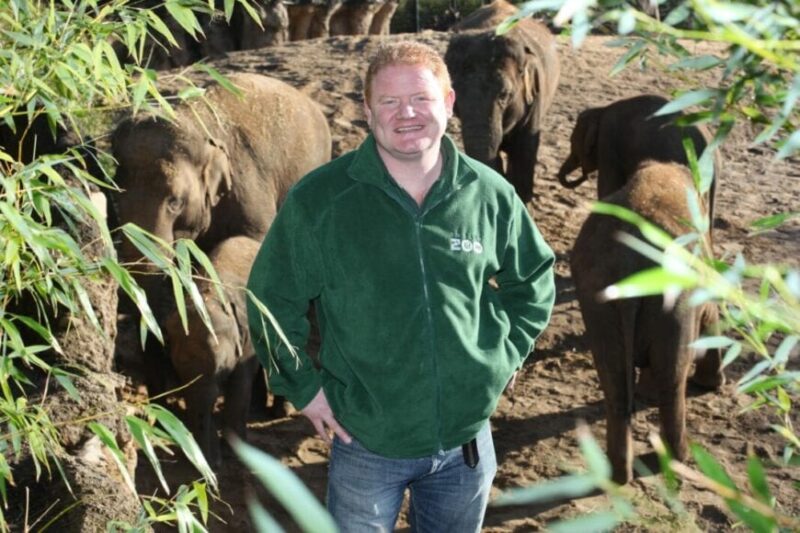
As people in the animal rights movement progressively combine their efforts with environmentalists, conversations on the history of abusive practices in zoos and against animals in general have become more common. Last night, at DU Zoological Society’s (ZooSoc) talk by Gerry Creighton, the insights into modern treatment methods of animals offered refreshingly optimistic perspectives. Creighton is an elephant specialist and experienced zookeeper at Dublin Zoo, and all kinds of students and members of the Trinity community came to the Botany building to go learn about the gradual transitions in elephant care at Dublin Zoo and worldwide: from the inhumane conditions at its opening in 1831 to the current world leading programme.
Creighton introduced the presentation with the dark history of conditions at Dublin Zoo, which were surprisingly shocking. The first elephant resident arrived in Dublin in 1835 and was marched up along the Liffey, quickly becoming a main attraction. Enclosures for those first elephants were cages with concrete floors so miniscule that the animals were forced to stand in their own waste. Training of the animals was done through brutal practices and negative reinforcement. Creighton explained how such extreme oppression of animals completely isolates them and leaves them devoid of any of their natural characteristics.
Standards slowly improved throughout the 20th century – in the 1960s, elephant rides through the zoo and pictures with elephants in uncomfortable and forced positions for the animals were still standard. Showing the audience pictures from this time, Creighton described the elephants as “emotionally bankrupt and suppressed”. While the enclosures were larger, they still had unnatural concrete floors which caused discomfort and actually even health risk for the elephants, meaning conditions involving the complete domination of the elephants and suppressing their natural behaviour.
Creighton started working at Dublin Zoo in the 1980s: as a second-generation zookeeper, he had worked with elephants from a relatively young age. Even by this time, despite a decrease in most abusive practices, zookeepers were still obligated to carry sharp hooks on sticks as a last resort in handling the animals. From early on in his career, Creighton understood the faults in the practices he witnessed.
In the following years, Creighton engaged in a progressive thinking movement in Dublin Zoo which involved: the demolition of the old enclosure, a focus on animal wellness, and revolutionising elephant care, specifically focused on establishing a self-sustaining and multigenerational herd. This new way of thinking culminated in 2005 with Dublin Zoo being the first zoo in the world to provide specialised sand rather than concrete, avoiding waste problems and simulating the elephants’ natural environment.
Creighton also took strong initiatives of his own when establishing a 24-hour schedule which would keep them engaged rather than the previous practice of feeding them occasionally and leaving them alone after the work day ended. This schedule focused on the philosophy “new day, new experience” and it involved challenging feeding patterns which engaged the elephants and promoted herd feeding. He also promoted varying landscapes, mixing the elephants with other species from their natural habitats and periodically introducing new scents, such as those from the tiger enclosure, to interest the elephants.
Potentially the most important change witnessed by Creighton was in training and caring for the animals. Zookeepers in Dublin Zoo now use positive reinforcements and treat incentives for training and cooperation with an emphasis that the animals can walk away if they want to. This is a far cry from the abusive practices in the past and allows for a much healthier and happier environment for the animals.
The effects of modern practices can be seen through changes in the animals’ behaviour. They now exhibit natural behaviours and cohesive herd relationships. As a result of the success Dublin Zoo has had, Creighton has become a global advisor on the treatment of elephants, including the introduction of 13 of the animals into the wild this month. While Creighton expressed his hope that a day will come where the public won’t need or desire zoos, he showed strong optimism for the future of animal care under these animal-welfare practices






